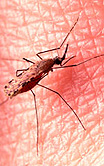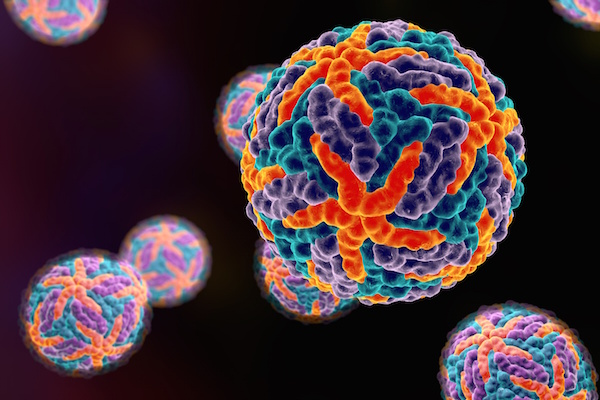
FRIDAY, July 30 (HealthDay News) — Two more cases of dengue fever were reported by health officials in Florida this week, bringing the total to 46 confirmed cases since last September, but a top government health official said it’s too early to say whether the mosquito-borne tropical disease is gaining a foothold in the United States.
“We don’t know how dengue got to Key West, and whether or not it’s endemic,” said Harold Margolis, chief of the dengue branch of the U.S. Centers for Disease Control and Prevention, in San Juan, P.R. “It’s only going to play out as we watch to see what happens during this warm, wet period of time, which is when dengue is at its peak,” he added.
“That’s the problem with a disease like this,” Margolis said. “You have to watch it but, at the same time, you also have to try to control it.”
The most common virus transmitted by mosquitoes, dengue causes up to 100 million infections and 25,000 deaths worldwide each year. The disease is found mostly in tropical climates, and many parts of the world, including Central and South America and the Caribbean, are currently experiencing epidemics. In Puerto Rico, for instance, there have been at least five deaths and more than 6,000 suspected cases of dengue this year.
Margolis said it’s possible that the Florida outbreak is an isolated incident. “We’ve seen this happen in other parts of the world, such as in northern Australia, where travelers return with the infection and introduce dengue, it spreads for a period of time, and then it goes away,” he said.
In the United States, a smattering of locally acquired cases in Texas have been reported since 1980, and all of them have coincided with large outbreaks in neighboring Mexican cities. The last dengue outbreak in Florida was 75 years ago, according to the CDC.
The disease typically causes flu-like symptoms such as high fever, headache, and achy muscles, bones and joints. Symptoms typically begin about two to seven days after being bitten. “It’s also called breakbone fever, because some people get really horrible, severe pains in their bones and joints,” explained Dr. Bert Lopansri, medical director of the Loyola University Health System International Medicine and Traveler’s Immunization Clinic, in Maywood, Ill. There is no cure or vaccine, and in most cases the illness resolves on its own within a couple of weeks.
Some people who contract the virus have relatively mild symptoms and may not even realize they’ve been exposed, according to the CDC. In fact, when health officials in Key West collected blood samples from 240 people in randomly selected households last year, they found that 5 percent had dengue active in their systems or had antibodies to the virus, suggesting that they’d been infected within the previous three months.
While dengue fever is not contagious, an infected person can act as a carrier and indirectly spread the disease to another person (and possibly a new location) if he or she gets bitten by another mosquito, which then bites and infects someone else.
There are four strains of dengue, and once you have been infected by one strain, you’re at a greater risk of developing a more serious form of the disease if you’re unlucky enough to get bitten by a mosquito infected with one of the other strains, Lopansri said.
In Key West, the vast majority of people infected with dengue have been residents rather than visitors, which is not surprising given the particular habits of the type of mosquito that transmits the virus, according to Margolis. Aedes mosquitoes tend to live around households, feed during the early morning and late afternoon, and breed in flowerpots and other small containers of water that people have around their houses, he said.
Nevertheless, Margolis cautioned travelers to educate themselves about where the disease is, and the best ways to prevent it. “There’s a lot of dengue in many parts of the world right now,” he added. “For instance, Mexico, Guatemala and Colombia all have very large epidemics. So if you’re going to be traveling to any of these places, you need to make sure you protect yourself.” That includes using mosquito repellants and wearing long pants and long sleeves as much as possible.
According to Lopansri, the most effective mosquito repellents contain either DEET or picaridin. Products that contain citronella or other plant-based ingredients aren’t as effective at repelling mosquitoes, he said.
“And if you travel to an area where outbreaks have been found and you then develop a fever, headache and body aches, be sure to tell your doctor,” Lopansri said.
More information
For more on dengue fever, visit the U.S. National Library of Medicine.

